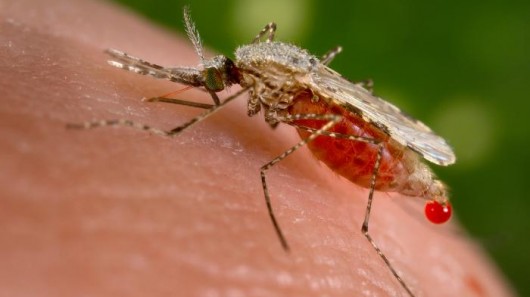In a new report published today, GeneWatch UK publishes evidence that genetically modified (GM) insect factories could spread antibiotic resistant bacteria into the environment, posing a risk to human health (1). Antibiotic resistance is recognised to be a major problem for human and animal health as it makes treatments for many bacterial infections ineffective. Bacteria that are resistant to multiple antibiotics are sometimes known as “superbugs”.

Find the Full Report here: www.genewatch.org
UK company Oxitec has developed GM mosquitoes and agricultural pests which are bred using the common antibiotic tetracycline in their feed. The report explores concerns that mass-breeding and repeated large-scale open releases of such GM insects could spread antibiotic resistance into the environment, potentially creating more superbugs.
“Mass production of GM insects in factories, using antibiotics as an additive in their feed, could lead to drug resistance in bacteria, leading to the spread of superbugs as billions of insects are released into the environment in future” warned Dr Helen Wallace, GeneWatch UK’s Director, “This important risk to human health has been ignored by regulators, despite bans on the use of antibiotics in animal feed in many countries”.
Large-scale experimental releases of tens of millions of Oxitec’s GM mosquitoes are already taking place in Brazil and Panama, without considering this important risk, and releases are being considered in the Florida Keys. Oxitec’s GM fruit flies have been approved for release in Brazil, although these experiments have not yet taken place, and Oxitec is awaiting approval for experimental releases of GM diamondback moths in New York State. The company withdrew an application to release GM olive flies in Spain last year.
If commercial uses were to take place in the future, many billions of Oxitec’s GM insects would be released year after year in attempts to suppress wild pest insect populations over vast areas and perhaps whole countries. If such GM insects became a new source of antibiotic resistance worldwide, this could have serious adverse impacts on human and animal health.
The report highlights evidence that:
• Exposure to antibiotics of the tetracycline class in feed during mass production is likely to lead to the development of antibiotic resistant bacteria in the GM insects’ guts;
• Repeated releases of tens of millions of GM insects will disseminate these bacteria and their resistance genes widely in the environment;
• In many insect species, bacteria and antibiotic resistance genes may spread through the insect population from the mainly male GM insects that are released to their wild mates and offspring;
• Horizontal gene transfer may lead to transfer of antibiotic resistance to bacteria causing food- and water-borne diseases, such as E. coli, via larvae that develop in food (agricultural pests) or water (mosquitoes);
• Direct routes of transfer to humans or animals include swallowing GM agricultural pests at the larval stage when they will contaminate fruit and vegetable supplies, swallowing GM mosquito larvae via contaminated water, or swallowing adult GM insects during mass releases, when they vastly outnumber the wild population;
• Disposal of tetracycline-contaminated water from GM insect factories may also pose a risk and antibiotic resistance might also be transferred to workers in these factories;
• The potential for antibiotic resistance to be transferred to other bacteria in the longer term via indirect routes, such as being spread by rodents eating GM larvae on crops to the bacteria carried by ticks which cause Lyme disease, needs further investigation, although horizontal gene transfer is much rarer in these species of bacteria;
• Mass-breeding of GM insects using tetracycline breaches existing policies and regulations, which advise against indiscriminate feeding of antibiotics to animals worldwide and which ban this practice in some countries.
For further information contact:
Dr Helen Wallace: +44(0)-1298-24300 (office); +44(0)-7903-311584 (mobile)



















Thanks for sharing this information.